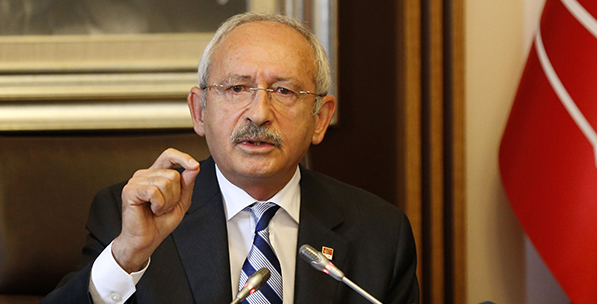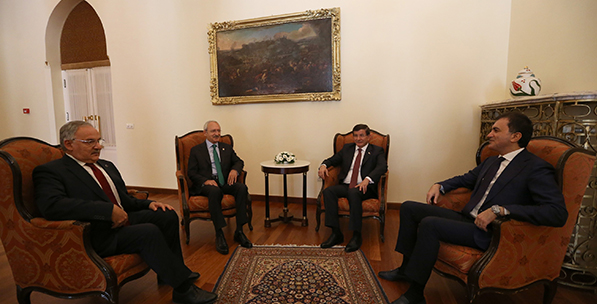People engage in political activities to pursue their ideals by using the tools available to them. As a result of the most recent general election in Turkey, the people compelled politicians to join together and form a coalition government. Whether this new era in the country's political history will end with snap elections or continue for a long time remains to be seen.
With another single party government out of reach, the political arena has started to normalize in certain ways: The Republican People's Party (CHP), the Nationalist Movement Party (MHP) and the Peoples' Democratic Party (HDP), which were united in their staunch opposition to the Justice and Development Party (AK Party) on the campaign trail, have failed to stick together as Parliament elected its new speaker last week: Former Defense Minister İsmet Yılmaz, the AK Party candidate, won the race because the CHP leadership's effort to form a monolithic bloc representing 60 percent of the electorate (i.e. everyone who didn't vote for the AK Party on June 7) failed mainly since charging the party with authoritarianism no longer works.
Sure enough, the three parties find it more difficult to reconcile their ideals for Turkey than to jointly criticize the AK Party. As such, the most important aspect of the ongoing normalization process is that opposition parties are slowly replacing a sense of agency with the idea that the AK Party represents the Great Satan of Turkish politics.
Another crucial development is that the AK Party has reflected on the election results and started reaching out to its competitors. However, certain political commentators are wrong to assume that the partial relief they experience today will inevitably lead to a new political setting capable of addressing the country's problems.
At this time, Turkey is equally likely to hold snap elections in a couple of months or broker a coalition between two parties. What, then, should observers expect from a coalition between the AK Party and the CHP or the MHP? Probably not a lot.
A quick glance at the contemporary history of Turkish politics reveals that coalition governments do not lead to long-term transformations. The fragmentation of the political arena in the 1960s and the 1970s paved the way to military coups. In 1991, the coalition government between the True Path Party (DYP) and the Social Democratic People's Party (SHP) received praise for saving the country from the Motherland Party (ANAP) and, according to some observers, launched a project of democratization. In the end, the government failed not only to address economic problems and domestic terrorism but also to draft a new constitution. A series of coalition governments, which remained in power until 2002, gave rise to the AK Party's 13-year run.
What distinguishes the current situation from the DYP-SHP partnership is that the AK Party must serve as the primary stakeholder in the next government, which means that opposition parties that criticized the AK Party for 13 years must find a way to work with it.
Both the CHP and the MHP remain staunchly opposed to the AK Party, which implemented a silent revolution in Turkey over the past decade. Their antagonism alone should stop observers from daydreaming about taking giant leaps forward.
One would be naive to identify an AK Party-MHP partnership as a "war coalition." Nor would it be accurate to claim that the AK Party could work with the CHP to create a post-Kemalist order. As a matter of fact, a partnership between the AK Party and the CHP cannot last in the absence of mutual trust and compromise. A poorly constructed partnership, as a matter of fact, could lead to friction within both parties. Furthermore, the CHP could exploit the short-lived partnership to discredit the AK Party in the next election cycle.
Briefly put, Turkey's next government must reflect each party's minimum requirements and modest goals rather than dreams of a grand transformation. Ensuring economic stability, bridging the income gap, modifying t









